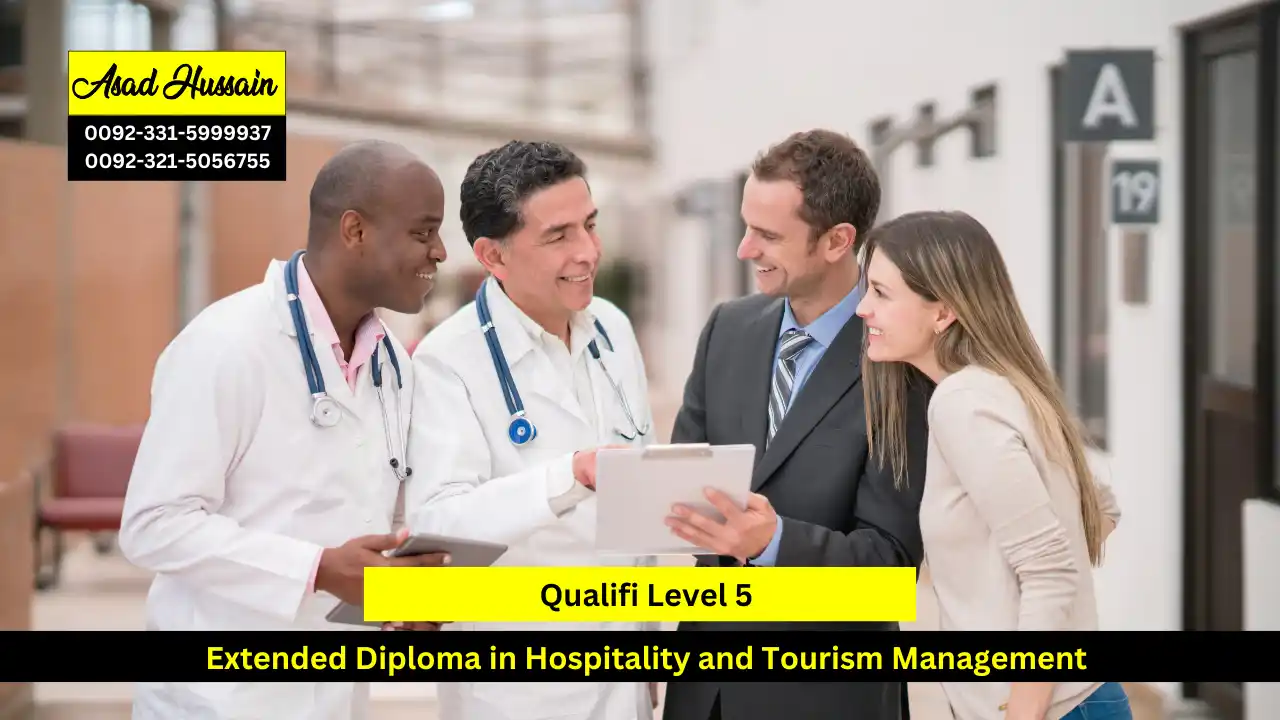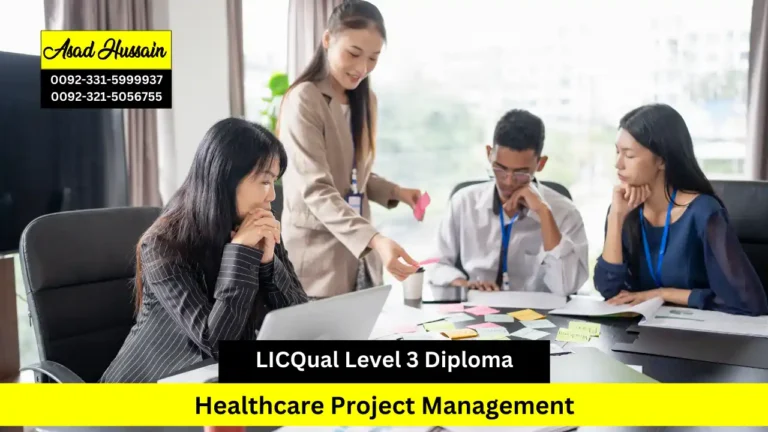In today’s globalized world, the hospitality and tourism industries are booming, offering numerous career opportunities for those with the right skills and knowledge. One of the most respected qualifications in this field is the Qualifi Level 7 Diploma in Hospitality and Tourism Management. This diploma is designed for professionals seeking to enhance their expertise, assume leadership roles, or transition into the hospitality and tourism sectors. Let’s delve into what makes this qualification so valuable and how it can shape your career.
The Qualifi Level 7 Diploma in Hospitality and Tourism Management is an advanced postgraduate qualification that provides comprehensive insights into the strategic and operational aspects of the hospitality and tourism industries. It is equivalent to a Master’s degree and is recognized globally, making it a prestigious addition to any professional’s resume
One of the standout features of the Qualifi Level 7 Diploma is its flexibility. Many institutions offer this qualification through various modes of study, including full-time, part-time, and online options. This flexibility allows working professionals to balance their studies with their career and personal commitments.
The diploma is recognized internationally, which means that graduates can pursue career opportunities worldwide. This global recognition also adds to the credibility and prestige of the qualification.
The Qualifi Level 7 Diploma in Hospitality and Tourism Management is a valuable qualification for anyone looking to excel in the dynamic and ever-evolving hospitality and tourism industries. Its comprehensive curriculum, flexibility, global recognition, and pathway to further studies make it an excellent investment for your career. Whether you’re an industry professional, a career changer, or a recent graduate, this diploma can open doors to exciting and rewarding career opportunities worldwide.
Program Highlights
The Qualifi Level 7 Diploma in Hospitality and Tourism Management consist of 120 credits for the completed qualification.
Mandatory Units
- Marketing Approaches in Hospitality and Tourism
- Strategic Planning Facets in Hospitality and Tourism
- Tourism Policy in International Context and Development
- The Culture and Society in Tourism
- Level 6 Qualification or
- First Degree
Marketing Approaches in Hospitality and Tourism
- Evaluate Marketing Strategies:
- Analyze and compare various marketing strategies used within the hospitality and tourism industries.
- Assess the effectiveness of different marketing campaigns and approaches.
- Develop Marketing Plans:
- Create comprehensive marketing plans tailored to specific hospitality and tourism businesses.
- Incorporate digital marketing techniques and traditional marketing methods.
- Understand Consumer Behavior:
- Examine the factors influencing consumer behavior in hospitality and tourism.
- Apply consumer behavior theories to develop targeted marketing strategies.
- Implement Branding Techniques:
- Develop and implement branding strategies to enhance the visibility and reputation of hospitality and tourism businesses.
- Analyze case studies of successful branding in the industry.
Strategic Planning Facets in Hospitality and Tourism
- Strategic Analysis:
- Conduct SWOT and PESTEL analyses to identify internal and external factors affecting hospitality and tourism businesses.
- Apply strategic management models to analyze industry trends and competitive environments.
- Develop Strategic Plans:
- Formulate strategic plans that align with the long-term goals of hospitality and tourism organizations.
- Integrate financial, operational, and marketing strategies into comprehensive business plans.
- Risk Management:
- Identify potential risks and develop mitigation strategies for hospitality and tourism operations.
- Evaluate the impact of strategic decisions on risk exposure and management.
- Leadership and Change Management:
- Analyze the role of leadership in driving strategic change within hospitality and tourism organizations.
- Develop change management plans to support strategic initiatives.
Tourism Policy in International Context and Development
- Understand Tourism Policies:
- Analyze the role of government policies in shaping the tourism industry at local, national, and international levels.
- Evaluate the impact of tourism policies on sustainable development and economic growth.
- Policy Formulation and Implementation:
- Examine the processes involved in formulating and implementing tourism policies.
- Assess the effectiveness of different policy approaches in achieving tourism development goals.
- International Tourism Development:
- Investigate the factors driving international tourism development and the challenges faced by emerging markets.
- Analyze the role of international organizations in promoting tourism development.
- Sustainable Tourism Practices:
- Develop strategies to promote sustainable tourism practices in line with international policies.
- Evaluate case studies of successful sustainable tourism initiatives.
The Culture and Society in Tourism
- Cultural Impact of Tourism:
- Analyze the impact of tourism on local cultures and societies.
- Evaluate the role of cultural heritage in shaping tourism experiences.
- Tourism and Social Dynamics:
- Investigate the social dynamics between tourists and host communities.
- Assess the influence of tourism on social structures and community development.
- Cultural Sensitivity and Ethics:
- Develop strategies to promote cultural sensitivity and ethical practices in tourism operations.
- Analyze case studies of ethical dilemmas and best practices in cultural tourism.
- Cultural Tourism Development:
- Explore the development of cultural tourism products and experiences.
- Evaluate the role of cultural events and festivals in attracting tourists.
The Qualifi Level 7 Diploma in Hospitality and Tourism Management is designed for a diverse group of learners, making it an ideal choice for a wide range of professionals. It caters to industry veterans seeking to enhance their strategic and operational expertise to advance into senior management roles. This course is also perfect for career changers aiming to transition into the dynamic hospitality and tourism sectors, providing them with the specialized knowledge and skills needed to thrive. Additionally, recent graduates with backgrounds in hospitality, tourism, business, or related disciplines will find this diploma valuable for gaining a competitive edge in the job market. Entrepreneurs and business owners within the industry will also benefit from the comprehensive curriculum, equipping them with the latest strategies and insights to grow and innovate their businesses.







